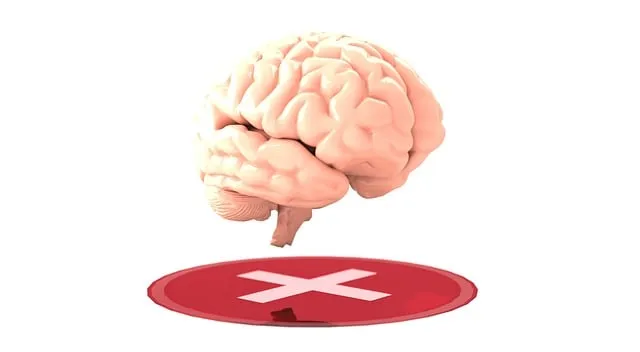Englewood Kaiser Permanente prioritizes mental well-being through comprehensive risk assessment and a dedicated mental health coverage package. Their proactive initiatives, including education programs and journaling exercises, empower patients and staff to manage stress and early warning signs of distress. The program offers various services, specialized therapists, and cutting-edge techniques, fostering holistic care and long-term emotional resilience. By identifying triggers and implementing tailored interventions, individuals can proactively navigate high-risk situations. Continuous monitoring through protocol reviews, training, and evidence-based practices ensures ongoing safety improvements in their mental health coverage.
Risk assessment and harm minimization planning are crucial components of providing safe, effective mental healthcare. This comprehensive guide explores essential strategies for identifying potential hazards and vulnerabilities within Englewood Kaiser Permanente’s mental health services. We delve into developing a robust harm minimization plan, implementing evidence-based interventions, and continuously monitoring progress to enhance patient safety. By understanding these key steps, healthcare professionals can ensure high-quality, secure mental health coverage for all patients.
- Understanding Risk Assessment: Identifying Potential Hazards and Vulnerabilities
- Englewood Kaiser Permanente Mental Health Coverage: A Comprehensive Overview
- Developing a Harm Minimization Plan: Strategies for Effective Intervention
- Implementing and Monitoring: Ensuring Continuous Improvement in Mental Healthcare Safety
Understanding Risk Assessment: Identifying Potential Hazards and Vulnerabilities

Risk assessment is a critical component of comprehensive risk management, and it’s an essential step in creating effective harm minimization plans. This process involves identifying potential hazards within a given context, be it a workplace, school, or healthcare setting like Englewood Kaiser Permanente mental health coverage areas. By meticulously scrutinizing various facets, professionals can uncover hidden risks that may go unnoticed otherwise. These hazards could manifest as physical dangers, environmental factors, or, in the realm of mental health services, potential psychological vulnerabilities among patients.
Englewood Kaiser Permanente’s mental health coverage benefits from proactive risk assessment through programs designed to foster mental wellness and inner strength development. For instance, Mental Health Education Programs can equip both patients and staff with valuable knowledge about managing stress, recognizing early warning signs of mental health issues, and implementing effective coping strategies. Similarly, Mental Wellness Journaling Exercise Guidance can be incorporated into care plans to help individuals process emotions, track progress, and build resilience, thereby minimizing the risk of adverse outcomes related to mental health conditions.
Englewood Kaiser Permanente Mental Health Coverage: A Comprehensive Overview

Englewood Kaiser Permanente offers a robust mental health coverage package designed to support individuals in managing their emotional well-being. This comprehensive program includes a range of services tailored to address various mental health concerns, from mood management to empathy building strategies. The coverage ensures access to specialized therapists, counselors, and psychiatrists who employ cutting-edge techniques for emotional well-being promotion.
Through this initiative, Kaiser Permanente aims to create a nurturing environment where members can receive holistic care. This includes not just treatment but also prevention and education, empowering individuals with the tools needed to maintain mental health in the long term. By prioritizing mental health in this manner, Englewood Kaiser Permanente underscores its commitment to fostering emotional resilience among its community.
Developing a Harm Minimization Plan: Strategies for Effective Intervention

Developing a Harm Minimization Plan is a critical step in addressing potential risks and promoting well-being. At Englewood Kaiser Permanente, mental health coverage offers valuable resources for individuals seeking support. One effective strategy involves identifying triggers and early warning signs of distress. By understanding personal vulnerabilities, individuals can anticipate and manage high-risk situations proactively. This may include establishing a network of supportive contacts, creating calming routines, or adopting confidence-boosting activities known to enhance emotional regulation—such as mindfulness practices, physical exercise, or engaging hobbies.
Intervention strategies should be tailored to individual needs and preferences. For instance, developing coping skills like deep breathing exercises or progressive muscle relaxation can provide immediate Anxiety Relief during moments of heightened stress. Additionally, seeking professional guidance from mental health specialists can offer valuable tools for managing underlying conditions that contribute to risk. Through proactive planning and access to comprehensive mental health coverage, individuals equipped with these strategies are better prepared to navigate challenging situations and foster a more stable and fulfilling life.
Implementing and Monitoring: Ensuring Continuous Improvement in Mental Healthcare Safety

Implementing and monitoring risk assessment and harm minimization plans is a dynamic process that plays a pivotal role in enhancing safety within mental healthcare settings, such as Englewood Kaiser Permanente’s mental health coverage. This involves a multifaceted approach, encompassing regular reviews of existing protocols, staff training, and the integration of evidence-based practices. By continuously evaluating patient experiences and outcomes, healthcare providers can identify areas for improvement and adapt their strategies accordingly.
Effective monitoring includes tracking key performance indicators related to patient safety, such as incident reporting rates, treatment adherence, and symptom management. This data allows for the implementation of targeted interventions aimed at improving care delivery and fostering a supportive environment that facilitates recovery. Moreover, integrating stress reduction methods, promoting positive thinking, and encouraging emotional regulation among patients can contribute to overall harm minimization, ensuring continuous improvement in mental healthcare safety.
Risk assessment and harm minimization planning are indispensable components of providing safe and effective mental healthcare, particularly within complex systems like Englewood Kaiser Permanente’s comprehensive mental health coverage. By meticulously identifying potential hazards and vulnerabilities, developing robust strategies for intervention, and continuously monitoring outcomes, mental health professionals can ensure a safer environment for patients. The Englewood Kaiser Permanente model serves as an exemplary framework for integrating these practices, ultimately enhancing patient care and outcomes in the context of comprehensive mental health services.






